
Project Minodu: Sustainable land management in Kara, Togo
| Farming & Agricultural Technology | Environment & Energy | Design Research eXplorations | Berlin
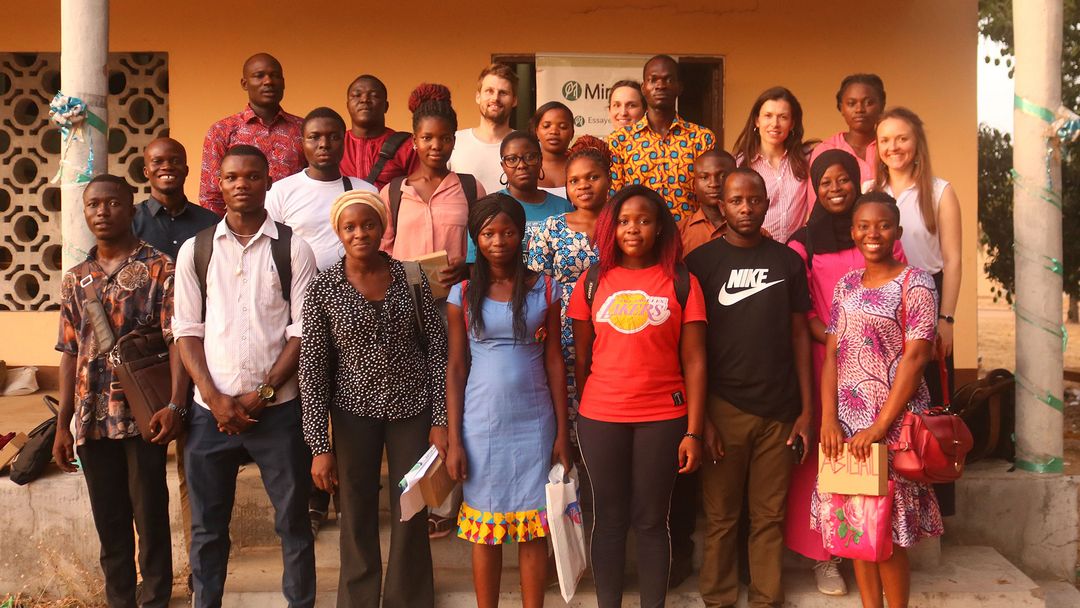
Hybrid university course between Berlin and Kara
To prepare for the work on local level, the Minodu team ran a hybrid course from November 2023 to February 2024. Participants were students from the Berlin University of the Arts (UdK) and Kara University. The course was developed in cooperation with the Institut Supérieur des Métiers de l'Agriculture (ISMA) of the University of Kara under the direction of professors Mikémina PILO and Essolakina BOKOBANA and the experts Victoire TSAMEDI, Ousia FOLI-BEBE and Séti AFANOU. In a participatory design process, the students identified irregular rainfall, increasing insect infestation and a lack of communication networks as the greatest challenges for the village communities. The developed prototypes of potential solutions were to be further developed during the workshop week in Kara.
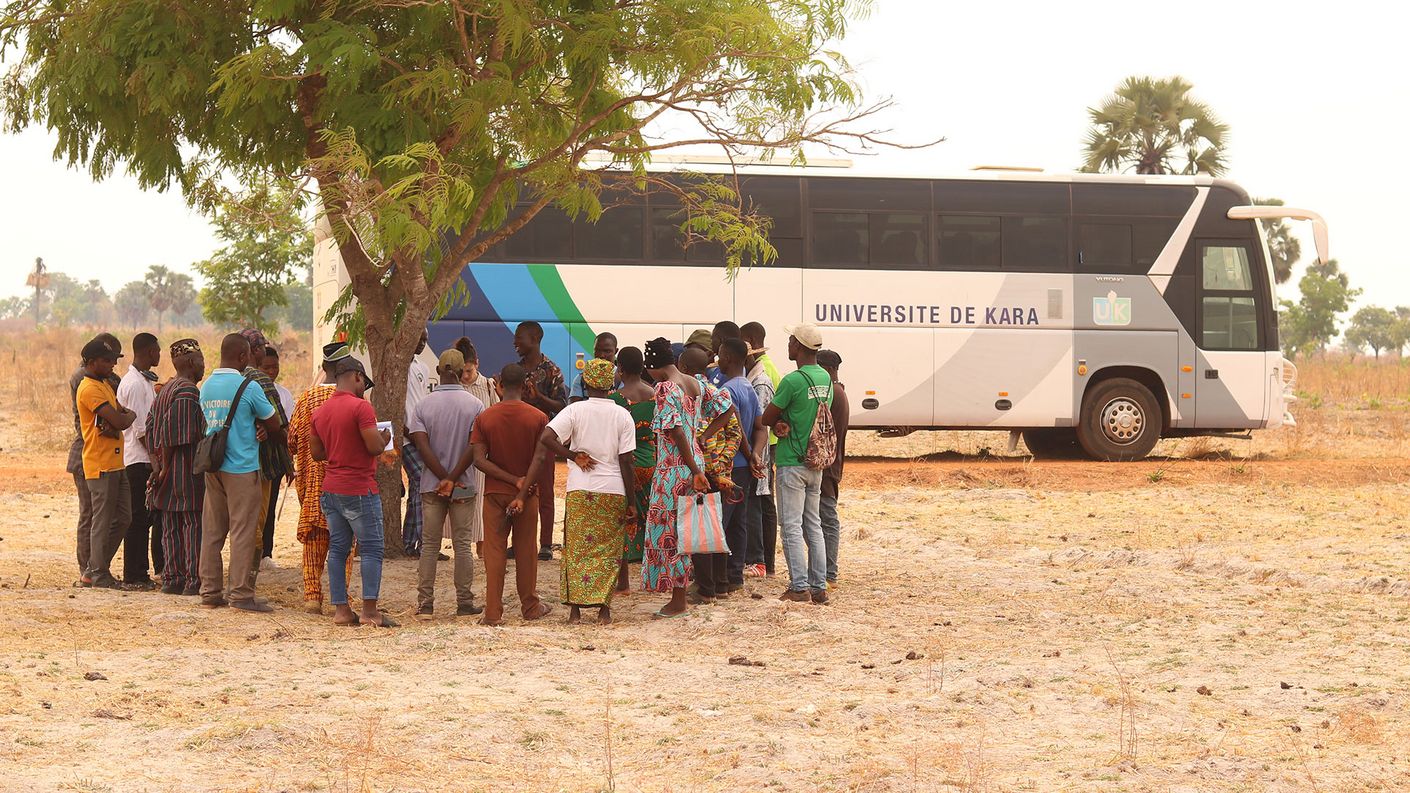 © DFKI, Ousia FOLI-BEBE & Philipp Gschwendtner
© DFKI, Ousia FOLI-BEBE & Philipp GschwendtnerStudents as key players
At the start of the workshop week, the Togolese students presented their prototypes and the communities they are working with. These presentations served as preparation for further visits to the villages and strengthened their role as mediators. In the subsequent workshops, local knowledge and appreciative communication were promoted.
Prior to the village visits, the students revised the prototypes in groups, integrated feedback and considered how best to present their ideas in order to receive honest feedback.
Exchange with local village communities
The students then visited the villages of Soumdina Haut, Lama-Saoudé and Tchitchao near Kara. There they held discussions with the inhabitants in the local language, Kabyè. It soon became clear that many are frustrated with aid programs that often only collect data but do not offer any sustainable support. The students endeavored to build trust and facilitate an open exchange. The villagers showed their plots of land and discussed the prototypes presented: an irrigation system for periods of drought, an indigenous plant extract for controlling insect pests and a Local Community Network (LCN) for the exchange of knowledge between villagers, researchers and agricultural advisory institutions. The discussions were intensive and constructive, and the students showed great commitment in their role as mediators between the local people and the academic world.
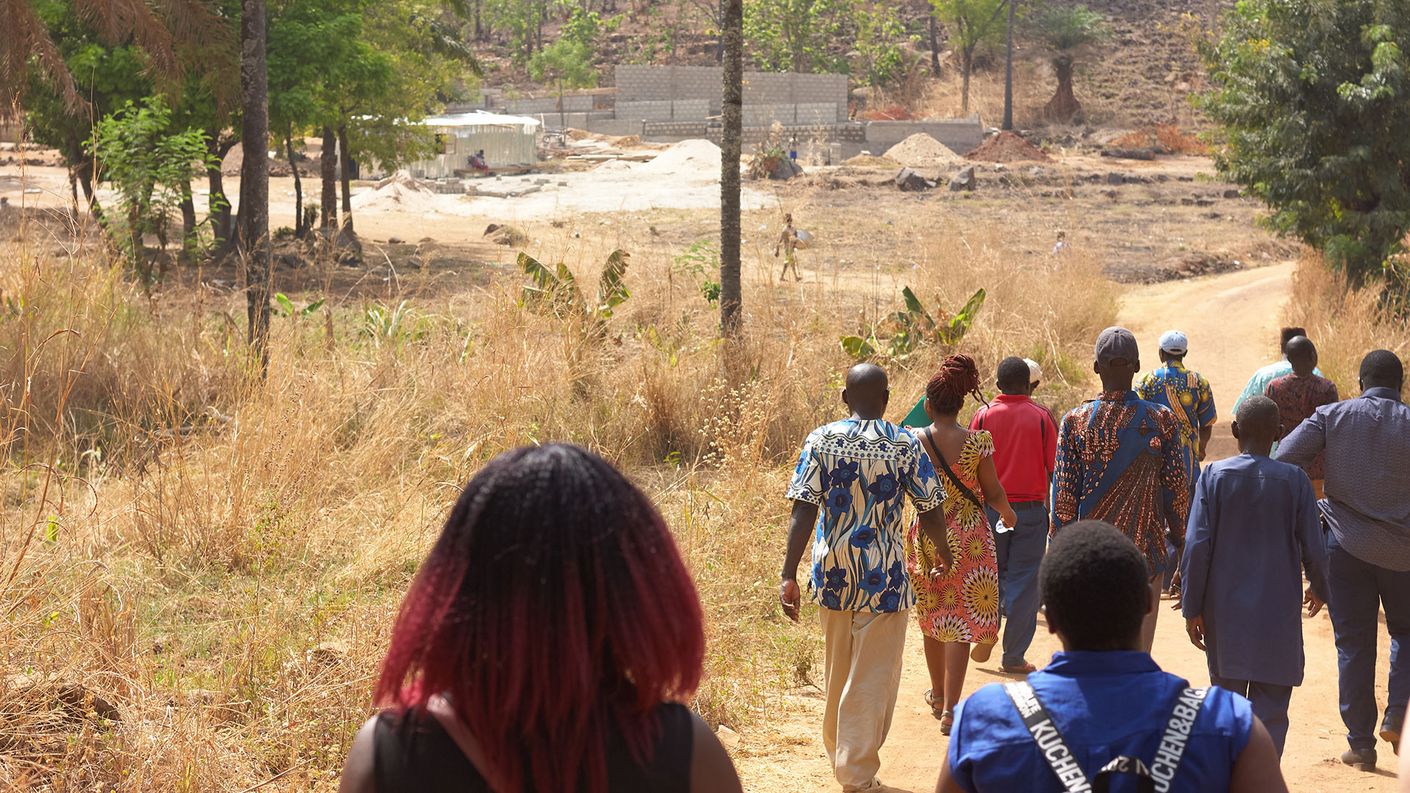 © DFKI, Ousia FOLI-BEBE & Philipp Gschwendtner
© DFKI, Ousia FOLI-BEBE & Philipp GschwendtnerAccess to technology
In workshops under the motto "The triangle of understanding: data, facts and technology", the students gained insights into various DIY technologies. These will later be implemented together with the female farmers and adapted to the realities of their lives. The students learned how analog sensors work and how they can be implemented using simple means such as conventional nails. A particular focus was placed on capacitive sensors for measuring soil moisture, which were connected to a microcontroller and controlled via visual programming.
The teleAgriCulture kit, a DIY weather station, was used to demonstrate the practical use of sensors. This weather station, equipped with temperature and humidity sensors and powered by a solar panel, transmits data to a community platform via WLAN or LoRaWAN.
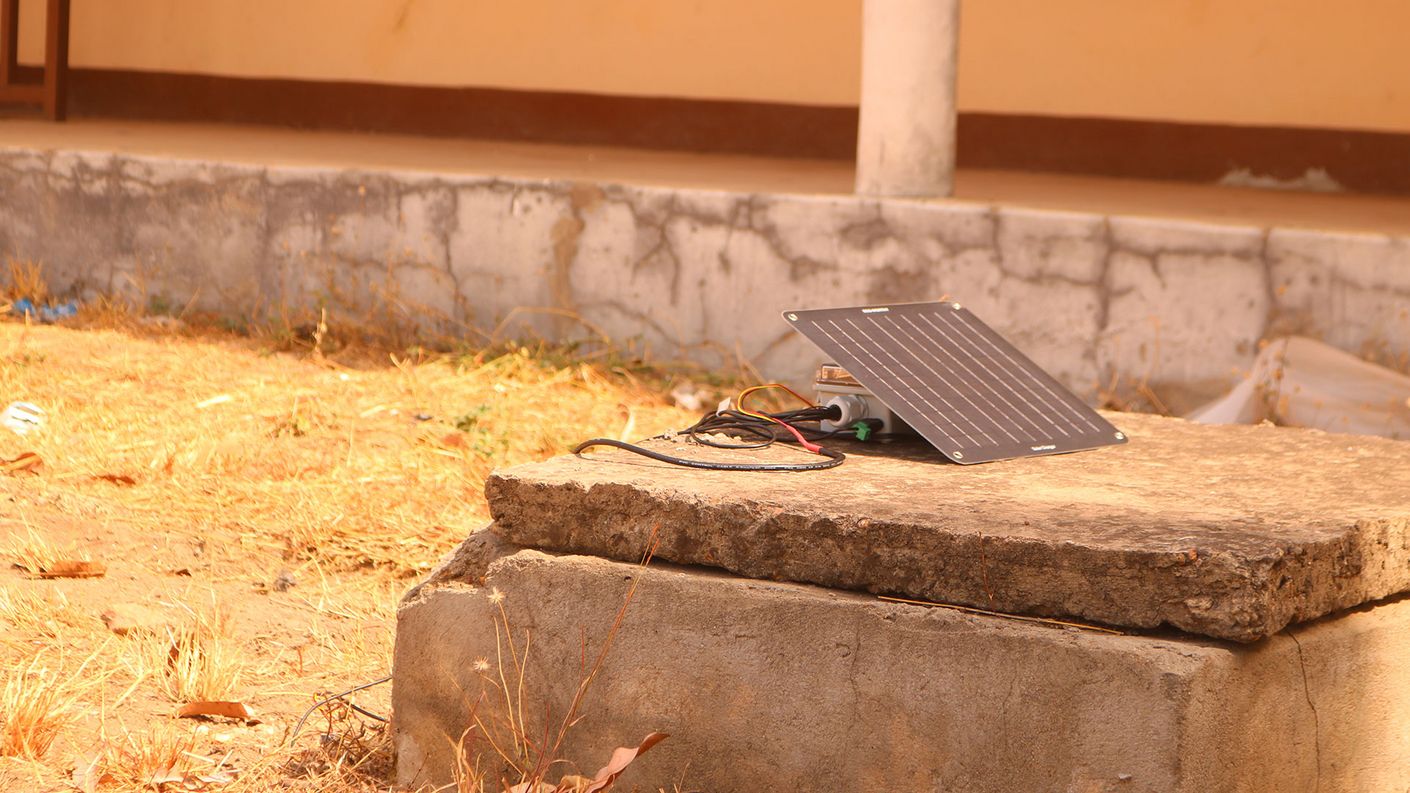 © DFKI, Ousia FOLI-BEBE & Philipp Gschwendtner
© DFKI, Ousia FOLI-BEBE & Philipp Gschwendtner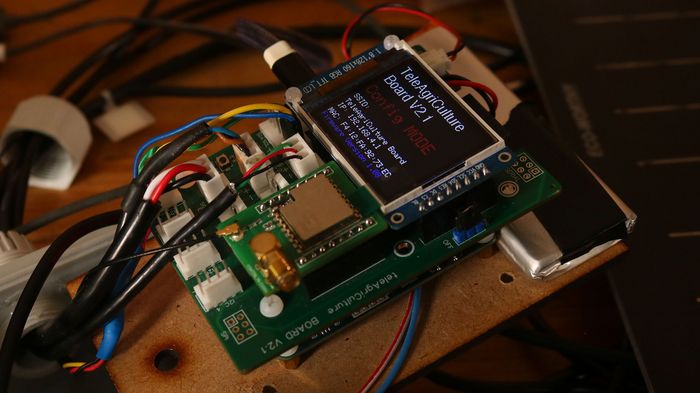 © DFKI, Ousia FOLI-BEBE & Philipp Gschwendtner
© DFKI, Ousia FOLI-BEBE & Philipp Gschwendtner © DFKI, Ousia FOLI-BEBE & Philipp Gschwendtner
© DFKI, Ousia FOLI-BEBE & Philipp GschwendtnerFinal reflection under mango trees
At the end of the week, the students presented their results under mango trees, to which representatives of Togolese institutes for agricultural research and technical support were invited. The students presented their projects, reflected on their journey together and discussed the next steps.
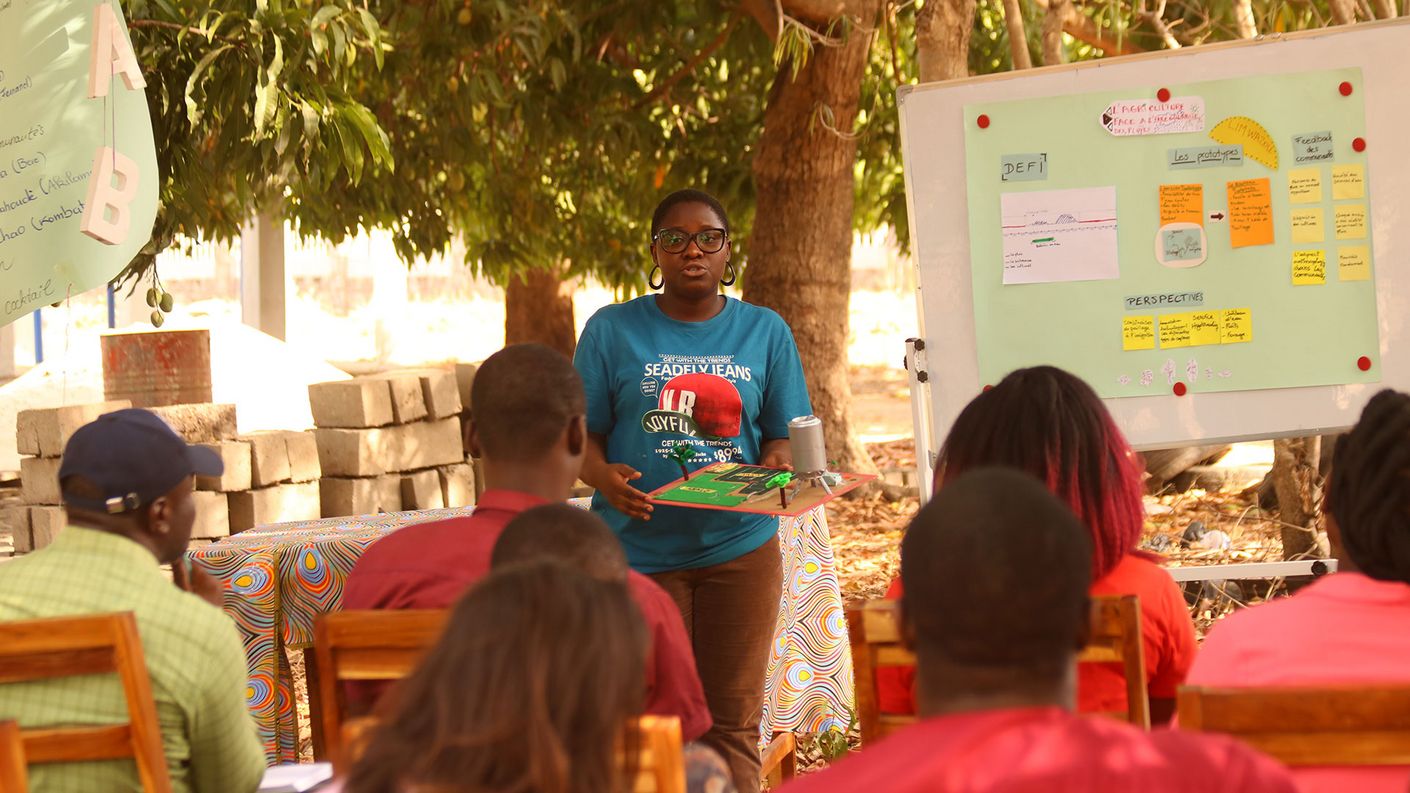 © DFKI, Ousia FOLI-BEBE & Philipp Gschwendtner
© DFKI, Ousia FOLI-BEBE & Philipp GschwendtnerFurther Information:
Contact:
Friederike Fröbel, M.Sc.
Researcher , DFKI Labor Berlin
- Friederike.Froebel@dfki.de
- Phone: +49 30 23895 5951
Carina Lange, M.A. B.A.
Researcher , DFKI Labor Berlin
- Carina.Lange@dfki.de
- Phone: +49 30 23895 5970
Press contact:
Aylin Cornelius, B.A.
Communications & Media , DFKI Labor Berlin
- Aylin.Cornelius@dfki.de
- Phone: +49 30 23895 1871